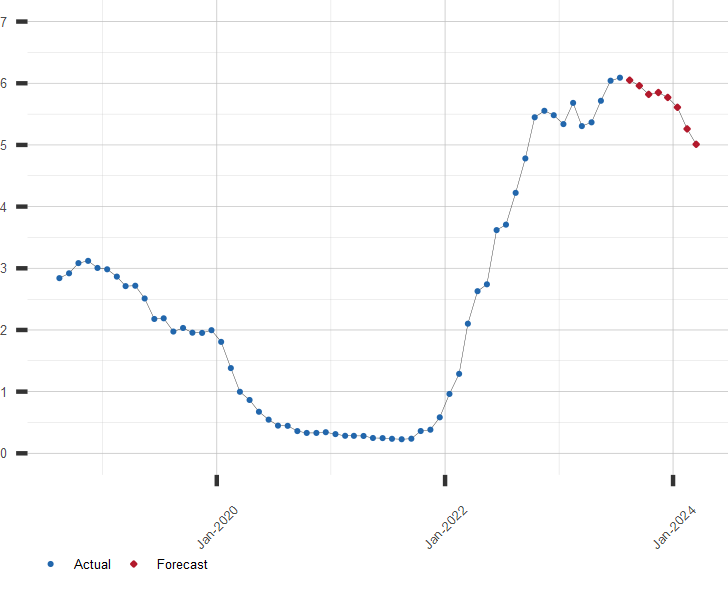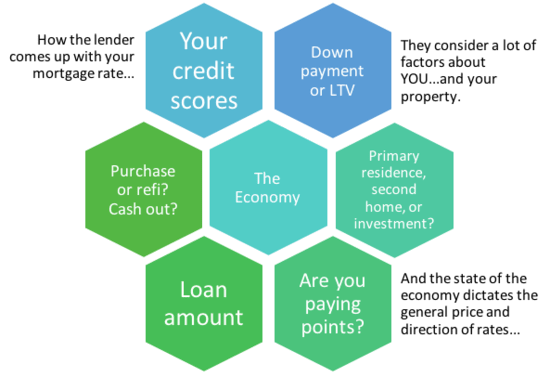A bigger deposit on a traditional loan will likewise speed up the procedure of reaching 80% on your loan-to-value Click for info (LTV) ratio, which is the percentage of just how much you still owe on your home loan - how do adjustable rate mortgages work. You can stop paying home mortgage insurance once the cash you have actually paid towards your house, including the down payment, reaches 20% of your home's value, or 80% LTV which lowers your monthly payments.
If you desire to make a 20% deposit to avoid being hit with home mortgage insurance coverage costs, you can estimate just how much house you can pay for by multiplying your cost savings by five. For example, if you had $34,000 in your savings the typical cost savings account balance in 2013 you might afford to finance a $170,000 home without acquiring home mortgage insurance coverage.

As such, it is essential that you factor these month-to-month expenses into your spending plan when identifying the quantity of mortgage debt you can manage. Numerous very first time house buyers have a hard time to get approved for home mortgages due to the fact that they can't fulfill the normal 20% deposit minimums on the size of house they desire.
If either of these describes your situation, you may be able to lower your deposit through a government loan. Both the Federal Housing Administration (FHA) and the Veterans Administration (VA) run home loan programs for eligible Americans. Newbie home purchasers with little credit history or a bad credit profile might think about getting an FHA mortgage instead of a traditional loan.

Borrowers with bad credit also tend to receive greater rate of interest, which can considerably increase your month-to-month home mortgage payment. Nevertheless, FHA loans are likewise an excellent alternative if your credit rating is above 580 but you want to make a smaller sized down payment than enabled by a traditional lending institution. Similar to other forms of debt funding, you're probably to be authorized for a cost effective loan if you've developed a strong credit profile and have healthy savings.
Another technique that many states have actually begun using are. It's possible to pay a low deposit on a traditional loan if you have outstanding credit, but a lot of banks require a deposit of 5% or more for the average customer. Government-backed FHA mortgages, which have a 3. 5% minimum down payment, can be a more cost effective alternative for those seeking a smaller sized up-front cost though, as mentioned above, all FHA customers need to pay monthly insurance expenses for the life of the loan.
The included MIP or PMI fee can be a pricy long term expense and may negate the monetary benefit of making a low deposit. Given the large cost of purchasing a house, it's most a good idea to save adequate cash to make a 20% deposit and prevent paying for insurance, particularly if you anticipate your budget plan to be tight in the coming years.
The 9-Minute Rule for How Many Types Of Reverse Mortgages Are There
Your down payment plays a crucial function when you're buying a home. A deposit is a percentage of your house's purchase price that you pay up front when you close your mortgage. Lenders typically look at the down payment quantity as your investment in the house. Not only will it affect how much you'll require to obtain, it can likewise affect: Whether your lending institution will require you to pay for personal mortgage insurance (PMI).
Your interest rate. Since your deposit represents your investment in the home, your loan provider will typically offer you a lower rate if you can make a greater deposit. So how much of a deposit will you require to make? That depends on the purchase rate of your home and your loan program.
The amount of your down payment helps give your loan provider the loan-to-value ratio (LTV) of the residential or commercial property. LTV is among the main factors in addition to debt-to-income-ratio and credit history that a lender thinks about when choosing whether or not to extend you credit. Your loan-to-value ratio indicates how much you will owe on the home after your deposit, and is expressed as a percentage that shows the ratio between your house's overdue principal and its appraised value.
Here's the formula: Loan amount appraisal worth or purchase cost (whichever is less) = loan-to-value (LTV) The house you wish to purchase has an evaluated worth of $205,000, however $200,000 is the purchase priceThe bank will base the loan amount on the $200,000 figure, due to the fact that it's the lower of the 2You have $40,000 for a down payment, so you need a $160,000 loan to meet the $200,000 purchase priceYour loan-to-value formula would look like this: $160,000 $200,000 =.
80 by 100% and that offers you an LTV of 80% If your deposit is lower than 20%, your loan-to-value ratio for traditional funding will be higher than 80%. Because case, your loan provider may require you to pay personal home mortgage insurance coverage, due to the fact that they're providing you more cash to acquire the home and increasing their possible risk of loss if the loan ought to go into default.
When you consider how much to put down on your home, consider your loan provider's requirements and what a higher or a lower deposit will suggest for you. Is it worth it to you to pay private home loan insurance monthly in order to receive the other benefits of homeownership? Or would it make more sense for you to conserve for a bigger down payment and avoid PMI, even if that indicates waiting longer to purchase a house? Knowing the financial impact of each option can assist you make your choice with confidence.
For newbie home purchasers, the challenge of coming up with a 20% home mortgage down payment is often tough sufficient to keep them out of the marketplace. However the 20% down payment is all but dead and has actually been for quite a long time, especially for first-time buyers. Get the answer to questions about your home mortgage, travel, financial resources and keeping your assurance.
Getting My Which Type Of Interest Is Calculated On Home Mortgages? To Work
Because outliers can skew an average, the telling figure for what other house purchasers put down is the average deposit, suggesting half paid that much or above, and half paid that much or listed below. For novice house purchasers who financed the purchase, the average deposit was 7%, according to a 2018 survey by the National Association of Realtors.
" The other half still think that they should have at least 20% down in order to qualify for a home mortgage." The minimum deposit for a house depends upon the type of loan and a lending institution's requirements. Here are the minimum down payment requirements for the most common types of loans.Conventional loans,which aren't guaranteed by the federal government, can have down payments as low as 3% for qualified buyers. 5% down. FHA loans enable lower minimum credit rating than traditional loans.VA loans for military service members and veterans, and USDA loans for particular rural and rural purchasers, normally require no deposit. VA loans are backed by the U.S. Department of Veterans Affairs, and USDA loans are guaranteed by the U.S.